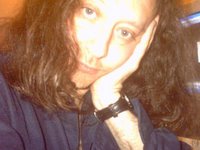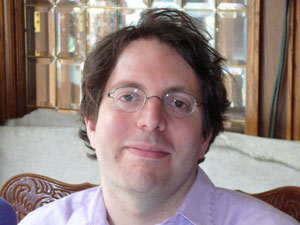 This is an interview with musician, teacher, and writer Walter Everett in which discussed are his own work, academic standards, the roles of artist and critic and other social actors, particular essays investigating music, the differences between academic and popular responses to culture, the world wide web, distinguished and enjoyable musicians such as Radiohead and Gnarls Barkley and Nirvana and Patti Smith, and music as a political force. Everett says, “It has been amazing to follow the changes in popular styles and artistry, alongside the changing notion of how and why people listen to music.”
This is an interview with musician, teacher, and writer Walter Everett in which discussed are his own work, academic standards, the roles of artist and critic and other social actors, particular essays investigating music, the differences between academic and popular responses to culture, the world wide web, distinguished and enjoyable musicians such as Radiohead and Gnarls Barkley and Nirvana and Patti Smith, and music as a political force. Everett says, “It has been amazing to follow the changes in popular styles and artistry, alongside the changing notion of how and why people listen to music.”
Category: Author interviews
An Interview with Linda Benninghoff, author of The Spaces Between Things
 The latest collection of Linda Benninghoff’s poems is here under the title The Spaces Between Things (erbacce-press, Liverpool, 2008). Like her previous chapbook departures, this collection brings memories of childhood, friends, family, and experiences of natural elements (animals, trees, water, and weather) to life. The 34 poems in this short book deal with the experience of feeling the space between things and how it relates to our definition of life as a conscious individual. I was intrigued by Linda’s deep involvement with nature and her use of poetic expression for sharing her thoughts with readers and so we arranged to have a brief e-mail interview. Here is our e-conversation about Linda’s recent book.
The latest collection of Linda Benninghoff’s poems is here under the title The Spaces Between Things (erbacce-press, Liverpool, 2008). Like her previous chapbook departures, this collection brings memories of childhood, friends, family, and experiences of natural elements (animals, trees, water, and weather) to life. The 34 poems in this short book deal with the experience of feeling the space between things and how it relates to our definition of life as a conscious individual. I was intrigued by Linda’s deep involvement with nature and her use of poetic expression for sharing her thoughts with readers and so we arranged to have a brief e-mail interview. Here is our e-conversation about Linda’s recent book.
Interview with Tony Nesca
 Tony Nesca, born in 1965, is the author of many books of fiction and poetry. As the reader will perceive, he is a writer who believes in the primacy of the unfettered imagination and the untrammeled life. In this candid interview, he talks about Winnipeg, Italy, influences, conventional publishers, on the neglect of Canadian authors, and much more.
Tony Nesca, born in 1965, is the author of many books of fiction and poetry. As the reader will perceive, he is a writer who believes in the primacy of the unfettered imagination and the untrammeled life. In this candid interview, he talks about Winnipeg, Italy, influences, conventional publishers, on the neglect of Canadian authors, and much more.
An interview with Douglas Wolk
 My interview with Douglas Wolk took place in October 2007, following the publication of his Reading Comics: How Graphic Novels Work and What They Mean. Naturally, we mostly discussed comics.
My interview with Douglas Wolk took place in October 2007, following the publication of his Reading Comics: How Graphic Novels Work and What They Mean. Naturally, we mostly discussed comics.
Interview with Helen Townsend
 The author of Above the Starry Frame talks about her “faction”, her characters, the Eureka Stockade and what it means, on the major themes of her book, and lots more.
The author of Above the Starry Frame talks about her “faction”, her characters, the Eureka Stockade and what it means, on the major themes of her book, and lots more.
Interview with Ross Duncan
 Ross Duncan, author of All Those Bright Crosses talks about the development of his book, themes, morality, his historical setting, the relationship between law and writing, and lots more.
Ross Duncan, author of All Those Bright Crosses talks about the development of his book, themes, morality, his historical setting, the relationship between law and writing, and lots more.
Illumination, An Internet Interview with Greg Thomas: On Culture and Canons, On Jazz and Being an African-American Male
 Gwendolyn Midlo Hall in Africans in Colonial Louisiana: The Development of Afro-Creole Culture in the Eighteenth Century (Louisiana State University Press, 1995), William Pollitzer in The Gullah People and Their African Heritage (University of Georgia Press, 1999), and editor Jacob Gordon with The African Presence in Black America (Africa World Press, 2004)—have focused on African cultural habits and values that long survived in America; and, as much has been written regarding the lives, artistry, and politics of the descendants in America of enslaved Africans and free blacks, that is of African-Americans, many of whom had and have complexions more diverse than the word black would indicate, most of what is written now about African-Americans is little more than a footnote: and those who add something comprehensive or new to public knowledge must be commended. Greg Thomas’s essay on canonization in jazz and literature respects both aesthetics and the context in which art is created and valued; and the essay is a fine piece of critical commentary, clear, reasoned, sure; and it identifies Marsalis and Gates as cultural heroes—not simply in light of their good intentions but in light of their genuine achievements…
Gwendolyn Midlo Hall in Africans in Colonial Louisiana: The Development of Afro-Creole Culture in the Eighteenth Century (Louisiana State University Press, 1995), William Pollitzer in The Gullah People and Their African Heritage (University of Georgia Press, 1999), and editor Jacob Gordon with The African Presence in Black America (Africa World Press, 2004)—have focused on African cultural habits and values that long survived in America; and, as much has been written regarding the lives, artistry, and politics of the descendants in America of enslaved Africans and free blacks, that is of African-Americans, many of whom had and have complexions more diverse than the word black would indicate, most of what is written now about African-Americans is little more than a footnote: and those who add something comprehensive or new to public knowledge must be commended. Greg Thomas’s essay on canonization in jazz and literature respects both aesthetics and the context in which art is created and valued; and the essay is a fine piece of critical commentary, clear, reasoned, sure; and it identifies Marsalis and Gates as cultural heroes—not simply in light of their good intentions but in light of their genuine achievements…
Interview with Dr Ruth Wajnryb
 Collins’ language consultant, Dr Ruth Wajnryb talks about the making of the latest dictionary, being a professional eavesdropper, on the perishable language of youth, the metrics of word inclusion, the use of language for manipulation, the language of silence, how we should all use dictionaries, her next surprising project, and lots more.
Collins’ language consultant, Dr Ruth Wajnryb talks about the making of the latest dictionary, being a professional eavesdropper, on the perishable language of youth, the metrics of word inclusion, the use of language for manipulation, the language of silence, how we should all use dictionaries, her next surprising project, and lots more.
An Interview with James Sallis
 James Sallis is pretty much the complete man of letters. Probably best known as a crime writer – in which role Ian Rankin has called him “one of the best of the best” – he has written sci-fi and literary fiction too. His non-fiction includes poetry, biography and criticism. And nor should one overlook here his work as a translator: if you should ever read Queneau’s Saint Glinglin in English, in the edition published by Dalkey Archive Press, you will be reading James Sallis’ prose. This wide-ranging interview – touching on various aspects of Sallis’ work and life, on the writing process itself and on the fate of the city of New Orleans – took place in July 2007.
James Sallis is pretty much the complete man of letters. Probably best known as a crime writer – in which role Ian Rankin has called him “one of the best of the best” – he has written sci-fi and literary fiction too. His non-fiction includes poetry, biography and criticism. And nor should one overlook here his work as a translator: if you should ever read Queneau’s Saint Glinglin in English, in the edition published by Dalkey Archive Press, you will be reading James Sallis’ prose. This wide-ranging interview – touching on various aspects of Sallis’ work and life, on the writing process itself and on the fate of the city of New Orleans – took place in July 2007.
Interview with Phil LaMarche
 The author of American Youth talks about his novel and its positive reception, cultural differences in perception, his characters, his narrative voice, the relationship between teaching and writing, his literary influences, on filming his work, his next project, and more.
The author of American Youth talks about his novel and its positive reception, cultural differences in perception, his characters, his narrative voice, the relationship between teaching and writing, his literary influences, on filming his work, his next project, and more.